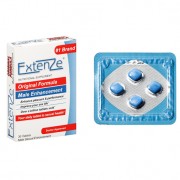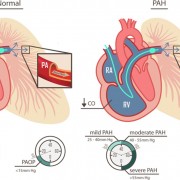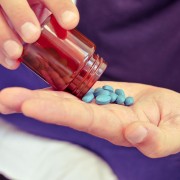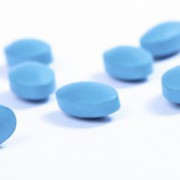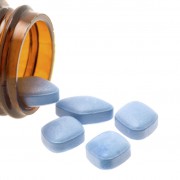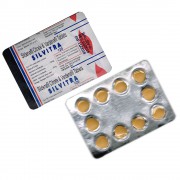Low Testosterone in Men and Its Influence on Male Sexual Function
Both male and female bodies are incredibly complex systems that are regulated by a variety of hormones that are essential to our development and survival. Testosterone is among the main hormones for men and its influence on the sexual health is of the utmost importance.
What is testosterone hormone?
Testosterone is the sex hormone that is absolutely crucial in the development of men. The amount of hormone is increased in the male body during puberty and influences the development of male physical features. The hormone is responsible for increase in the amount of body hair, deepening of the voice, and enhancement in the size of the testicles and penis. Testosterone also helps men keep muscles and bones strength. Moreover, the hormone is necessary to achieve production of sperm and influences man’s ability to experience sexual arousal and maintain his interest in sex.
What are the symptoms associated with reduced levels of testosterone?
The condition when a man experiences decreased levels of testosterone is often referred to as low-T or hypogonadism. Natural reduction of this male hormone in the body happens due to the process of aging. It has been estimated that approximately four out of ten men after the age of 45 are diagnosed with low levels of testosterone. When it comes to determining whether you may have low levels of testosterone, there are some signs of sexual and non-sexual nature. The signs that don’t influence sexual function include:
- inability to gain muscles and reduction of usual muscle mass
- depression and low levels of energy
- iron deficiency
- reduction of calcium in the bones, which makes them more fragile
- gaining weight
Some of the widely experienced signs that are related to sexual function include:
- difficulties achieving erections
- the erections get less firm
- the decrease of the libido
Generally, male patients start to experience certain symptoms earlier than others, and the signs connected to the sexual function are the most noticeable.
Which factors can lead to the reduction of testosterone?
Aging is not a sole factor that can significantly lower the levels of testosterone in male patients, but there are a number of health issues that can affect the presence of this hormone. Some of the most widespread conditions include:
- Diabetes
- High levels of cholesterol
- Obesity
- Hypertension
- HIV and AIDS
Nearly half of the male patients who suffer from obesity, hypertension, AIDS, high cholesterol or diabetes are diagnosed with reduced levels of testosterone. Moreover, there are various medications that can cause reduction of testosterone, so it is important to inform your medical advisor if you have low levels of testosterone, as you should only consume the drugs that don’t have this effect. According to the research, about 75 percent of men who have been consuming opioids for a prolonged period experience reduction of testosterone. Before treating the problem of low testosterone levels, it is important to pay attention to any of the abovementioned conditions by choosing appropriate medications and giving up harmful habits, including smoking, overeating, and excessive consumption of alcohol. Making healthy dietary choices and exercising will increase your chances of achieving the desired result.
There are a number of drugs that can be purchased from Canadian Pharmacy that can help you treat a variety of health issues, including the drugs that are used for the reduction of cholesterol, improvement of blood pressure, antidiabetics, and weight-loss pills.
How is low testosterone diagnosed?
The diagnosis of hypogonadism is made according to a blood test. In some cases, the test has to be performed several times to ensure accurate results. In most cases, the person is diagnosed with hypogonadism when the levels of testosterone in blood are lower than 300 ng/dL.
Other tests that are recommended to perform along with testosterone blood tests include prostate specific antigen blood test in case there are any signs of prostate cancer. Additionally, you may be asked to go through the blood test to determine the number of red blood cells, as their level can increase during testosterone treatment.
What is testosterone replacement therapy?
In case you notice any of the mentioned symptoms and suspect that you may have reduced levels of testosterone, you should start your treatment with a visit to a healthcare specialist. There are a number of testosterone replacement therapy options so you can select the most convenient and beneficial one for you. The essence of this therapy is in providing a man with a sufficient amount of testosterone and this goal can be achieved in a number of ways, such as:
- Skin gel. This type of testosterone replacement treatment is the most widely chosen by male patients. Approximately 70 percent of men who go through testosterone replacement therapy prefer this method because of how convenient and effective it is. The gel is created to be applied to the skin of the upper arms and shoulders after a patient takes a shower.
- Skin patches. A second most widely used option includes skin patches. Depending on your levels of testosterone, your medical advisor should prescribe you a duration for which the patches should be worn. You should not apply more patches than prescribed by your medical advisor.
- Testosterone injections and pellets. Testosterone injections are given into the muscles while the pellets are placed in the soft tissue ensuring a slow release of the hormone into the blood.
- Supplements. This method is most effective to support your level of testosterone so that it doesn’t drop significantly. Natural herbal testosterone supplements can be bought from My Canadian pharmacy www.mycanadianpharmacyrx.com for the most affordable prices.
Any of the mentioned methods should not be used if you have normal levels of testosterone and for non-medical purposes, such as to grow muscles or enhance your sexual performance. Also, it is essential to determine the exact level of testosterone using the blood test before starting the treatment. Moreover, if you want to conceive a baby, it is not a time to perform testosterone replacement therapy as it can influence your fertility and decrease the sperm count.
You should always undergo a thorough physical examination to eliminate any possible complications and get the best results from this therapy. You should remember that many of the symptoms associated with hypogonadism can also occur due to other health issues. It is important to eliminate any other health problems before starting testosterone replacement treatment.
What are the possible adverse effects of TRT?
Before starting any treatment, it is essential to know about the adverse effects so you can inform your medical advisor if you notice anything unusual. Some of the adverse effects of testosterone replacement therapy may include:
- the appearance of acne
- soreness, tenderness or swelling in the breast area
- infertility
- swelling in the area of ankles or feet
- increased number of red blood cells
- lightheadedness and dizziness
- development of urinary symptoms, especially in men who previously had problems with an enlarged prostate
- in some cases skin gels can cause the appearance of skin rash
Testosterone replacement therapy requires a patient to perform health check-ups regularly and inform a medical advisor if there occur any of the adverse effects. The blood tests determine the number of red blood cells as well as testosterone levels tests. The tests may be necessary over the course of testosterone treatment to check if everything goes as planned. Before you decide to start testosterone replacement therapy, you should consider all the adverse effects and benefits with your medical advisor. In case you notice any of the mentioned or other symptoms, you should inform your healthcare specialist without hesitation.
Who should be especially careful with testosterone replacement therapy?
While certain adverse reactions can happen to any patient regardless of his health, there are certain conditions that you should be especially careful with during the treatment and always inform your medical advisor about them before starting your therapy:
- Breast or prostate cancer. The patients diagnosed with prostate or breast cancer as well as people at high risk of developing these diseases should not take testosterone.
- Water retention. Male patients suffering from liver, kidney, or cardiovascular diseases are at risk of developing problems with water retention.
- Enlarged prostate or various urinary problems. If you have ever suffered from urinary issues, including pain when urinating, blood in the urine, urinating too often, or problems with enlarged prostate, there is a possibility that testosterone therapy can worsen the symptoms.
- Sleep apnea. You should be careful with testosterone replacement therapy if you suffer from sleep apnea, as it can become worse.
- Infertility and sperm count decrease. You should avoid testosterone replacement treatment if you’re trying to become a father, as the treatment can reduce the sperm count and lead to infertility when you take it a long time.
- Heart health. The influence of testosterone treatment on the heart function is still quite unclear so you should definitely inform your medical advisor if you are suffering from any cardiovascular problems.
A complete physical examination will help you determine the severity of any of these conditions so that your medical advisor knows which dosage of the testosterone is the safest in your particular case.
Which results can a patient expect after testosterone replacement therapy?
Testosterone treatment can truly become a life-changer for a lot of men as it helps them return their ability to be energetic, healthy, and alive. There are a number of benefits that can be experienced after testosterone replacement treatment, including:
- the increase of the libido, mood, and overall vitality
- improved ability to achieve erections
- the increase in the ability to gain muscle mass
- better sleep
- increased bone density
- lower body fat
It should be noted that hypogonadism is a chronic condition, which means that it requires a long-term treatment. When you don’t take the measures to increase the level of testosterone, it remains low.
Is testosterone replacement therapy effective in the treatment of ED?
A lot of patients tend to confuse the conditions of erectile dysfunction and hypogonadism, which is not surprising as both of these disorders share similar symptoms. While the symptoms of these problems are quite similar, the causes are different, which means that they require different approaches. Erectile dysfunction can occur even when the level of testosterone in the body is completely normal and, in this case, testosterone replacement therapy cannot be effective in the treatment of erectile problems. Erectile dysfunction is often treated using PDE5 inhibitors that can be bought from Canadian Pharmacy, including the best-selling drug – Canadian generic Viagra www.mycanadianpharmacyrx.com/generic-viagra. Similarly, erectile dysfunction drugs won’t help you deal with erectile problems if the main cause of your inability to achieve erections is the lack of testosterone.
Article by My Canadian Pharmacy: http://www.mycanadianpharmacyrx.com

